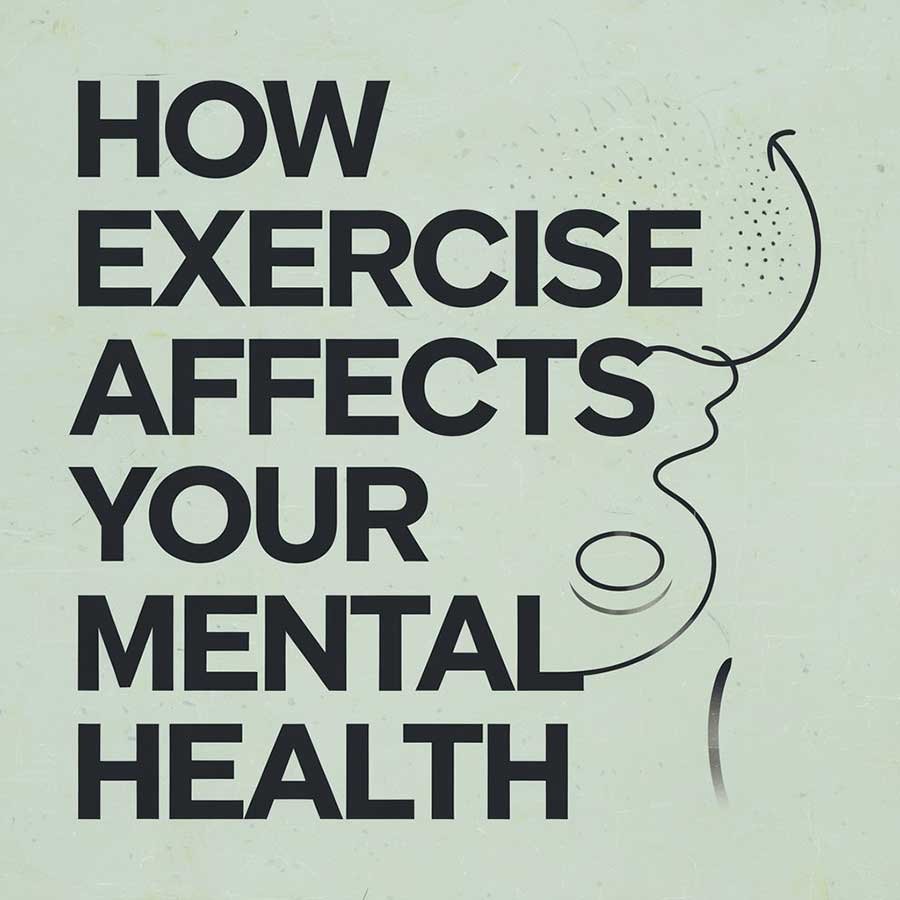
How Exercise Affects Your Mental Health
Exercise is widely known for its physical benefits, but its impact on mental health is just as profound. Regular physical activity can enhance mood, reduce stress, and improve overall emotional well-being. Understanding how exercise influences mental health can help you incorporate movement into your daily life for a healthier mind and body.

The Connection Between Exercise and Mental Health
Physical activity triggers a variety of physiological and psychological responses that contribute to better mental health. Exercise helps by:
- Reducing stress and anxiety
- Enhancing mood and emotional resilience
- Improving sleep quality
- Boosting self-esteem and confidence
- Supporting cognitive function and focus
How Exercise Benefits Mental Health
1. Exercise Reduces Stress and Anxiety
When you exercise, your body releases endorphins, often referred to as “feel-good hormones.” These chemicals help reduce stress levels and promote relaxation. Additionally, physical activity lowers levels of cortisol, the stress hormone, which can help alleviate feelings of anxiety.
Best exercises for stress relief:
- Walking or jogging in nature
- Yoga or deep stretching
- Swimming or cycling
2. Boosts Mood and Reduces Symptoms of Depression
Exercise has been shown to be an effective tool in managing depression. It promotes the release of dopamine and serotonin, neurotransmitters that enhance mood and create a sense of well-being.
Helpful activities for mood enhancement:
- Group fitness classes for social interaction
- Dance workouts to combine movement with joy
- Strength training for a sense of achievement
3. Improves Sleep Quality
Regular exercise helps regulate sleep patterns by promoting relaxation and reducing anxiety. Better sleep contributes to improved emotional stability, cognitive function, and overall mood.
Best exercises for better sleep:
- Low-intensity activities like yoga or stretching before bed
- Moderate aerobic exercises during the day
- Strength training to reduce restlessness at night
4. Enhances Self-Esteem and Confidence
Engaging in regular exercise improves physical strength and endurance, which boosts self-confidence and self-image. Setting and achieving fitness goals creates a sense of accomplishment, reinforcing positive self-worth.
Best activities to build confidence:
- Weightlifting to track strength progress
- Martial arts for discipline and empowerment
- Running or cycling for endurance milestones
5. Supports Brain Health and Cognitive Function
Exercise stimulates the production of brain-derived neurotrophic factor (BDNF), a protein that supports brain cell growth and protects against cognitive decline. It also improves memory, concentration, and problem-solving skills.
Best exercises for brain health:
- Aerobic workouts like swimming or biking
- Mindful movement practices like tai chi
- HIIT workouts to boost brain plasticity
How to Make Exercise a Part of Your Mental Health Routine
1. Start Small and Stay Consistent
- Aim for at least 30 minutes of exercise most days of the week.
- Begin with activities you enjoy to build a sustainable habit.
2. Combine Exercise with Mindfulness
- Try mindful walking or yoga to connect movement with breath and relaxation.
- Engage in activities that promote focus, such as Pilates or tai chi.
3. Use Exercise as a Coping Mechanism
- When feeling overwhelmed, go for a walk, do some light stretching, or engage in a quick workout session.
- Replace unhealthy coping mechanisms with physical activity to naturally regulate emotions.
4. Engage in Social Fitness Activities
- Join a fitness group or class for motivation and social connection.
- Exercise with a friend or family member to enhance accountability and enjoyment.
5. Listen to Your Body and Rest When Needed
- Overtraining can lead to burnout and increased stress levels.
- Ensure a balance between exercise and recovery for optimal mental and physical health.
Picture This
Imagine finishing a workout and feeling an overwhelming sense of clarity and relaxation. Your mind feels lighter, your stress levels are reduced, and your mood is uplifted. Over time, you notice improved sleep, better focus, and a growing sense of self-confidence. With every workout, you’re not just strengthening your body—you’re nurturing your mental health as well.
What small step can you take today to move your body for better mental health?
Please Share This Article
If you found this article helpful, please share it with others who could benefit from the mental health benefits of exercise. A healthier mind starts with movement!






